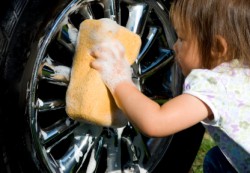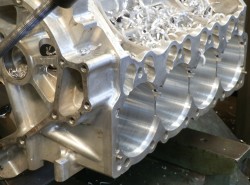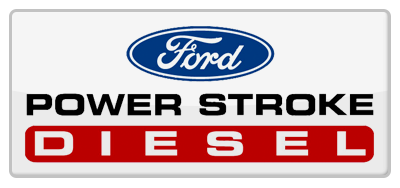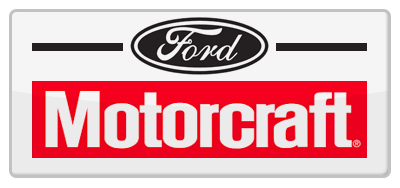
More and more people are keeping their vehicles longer as the average age of a car on the road today is more than 11 years. Considering the cost of a new car is about $31,000 on average, deciding to keep your car rather than buying a new one makes financial sense, says the non-profit Car Care Council. The Car Care Council offers sensible steps to help motorists maintain their vehicles for safety, dependability and value. Some steps are easy like getting the vehicle serviced regularly and just keeping it clean!
Continue Reading

We are a JASPER Engine & Transmission Owner-Installer and offer affordable solutions to any engine issues you have from regular maintenance and service appointments and diagnostics to complete engine replacements and with the JASPER Nationwide 3 Year | 100,000 Mile Warranty it's the easy choice. That car, truck, van or SUV is the vehicle you wanted...
- That gets you to work, the kids to their activities and carries groceries or the supplies for the next home project?
- The one your business depends on to get the work done and the bills paid?
- Or the one that’s just for fun, making your weekend brighter and the work week all worth it?
Continue Reading

After two of the worst winters ever in many parts of the country, the Car Care Council suggests that motorists take a little extra time now to make sure their vehicles are prepared for the unexpected when weather arrives.
“The last two winters brought record-setting snowfall. That may sound like a winter wonderland, but many motorists experienced breakdowns because they did not take preventative measures to make sure their vehicles were ready for the elements,” said Rich White, executive director, Car Care Council. “Taking the time now to have your vehicle checked will help you avoid getting stranded in sub-zero temperatures and facing a costly repair bill.”
Continue Reading
The holidays are stressful enough without having to worry about your vehicle making it over the river and through the woods in time for dinner at grandma’s house. The Car Care Council recommends that before hitting the road for the holidays, you take a little time to have your vehicle thoroughly inspected to make sure it is road ready.
The last thing anyone wants during the holiday season is to break down miles from home in the middle of nowhere,” said Rich White, executive director, Car Care Council. “It’s always a wise idea to have your vehicle checked out before you leave home to identify any potential problems that can be serviced before your holiday journey.”
Continue Reading
You do not have to use the dealer for repairs and maintenance to keep your warranty in effect! Source Consumer FTC. If you own a car, you know how important it is to keep up with routine maintenance and repairs. But can a dealer refuse to honor the warranty that came with your new car if someone else does the routine maintenance or repairs?
The Federal Trade Commission (FTC), the nation's consumer protection agency, says no. In fact, it's illegal for a dealer to deny your warranty coverage simply because you had routine maintenance or repairs performed by someone else. Routine maintenance often includes oil changes, tire rotations, belt replacement, fluid checks and flushes, new brake pads, and inspections. Maintenance schedules vary by vehicle make, model and year; the best source of information about routine scheduled maintenance is your owner's manual.
Continue Reading














